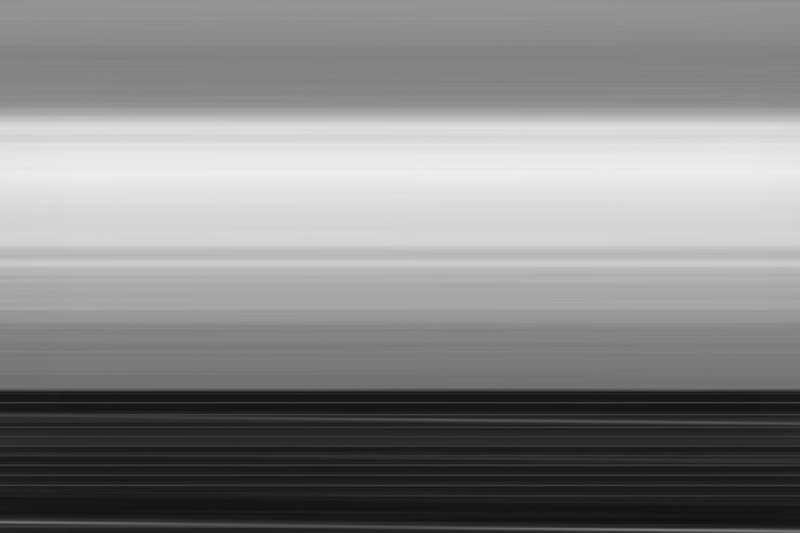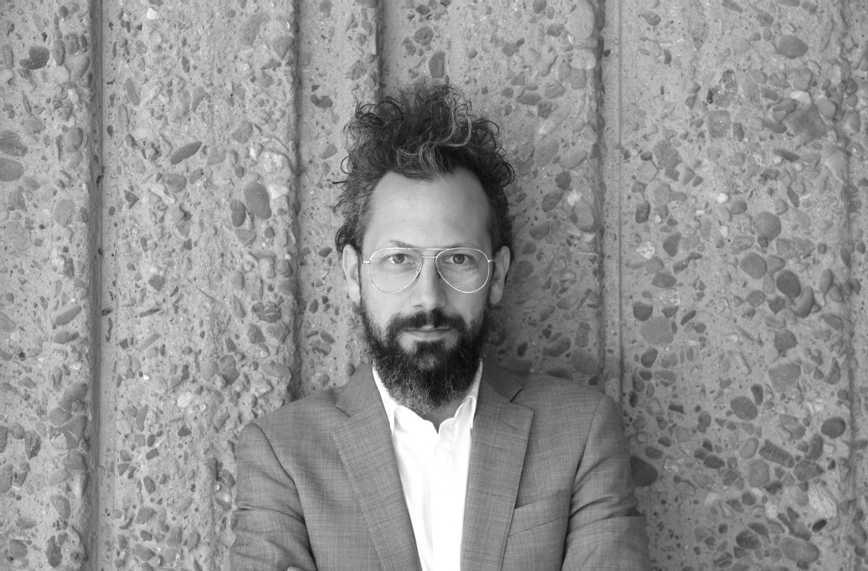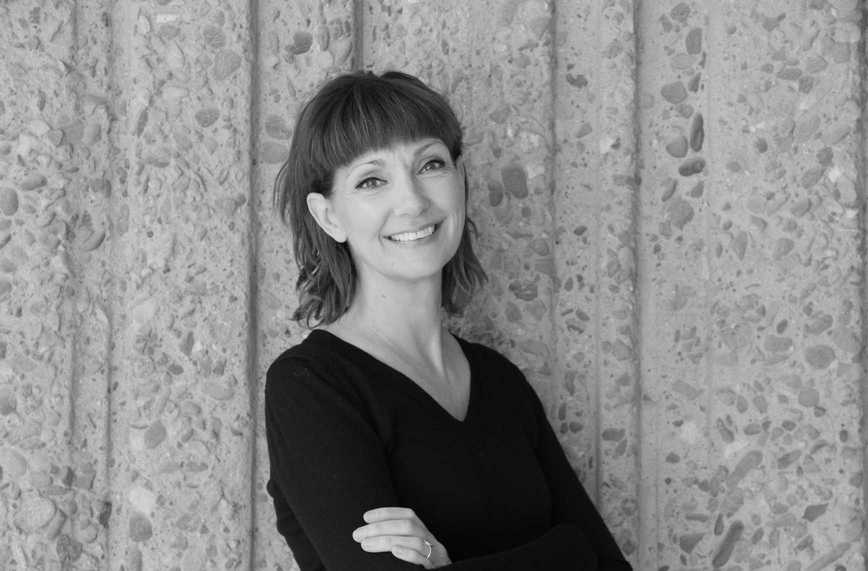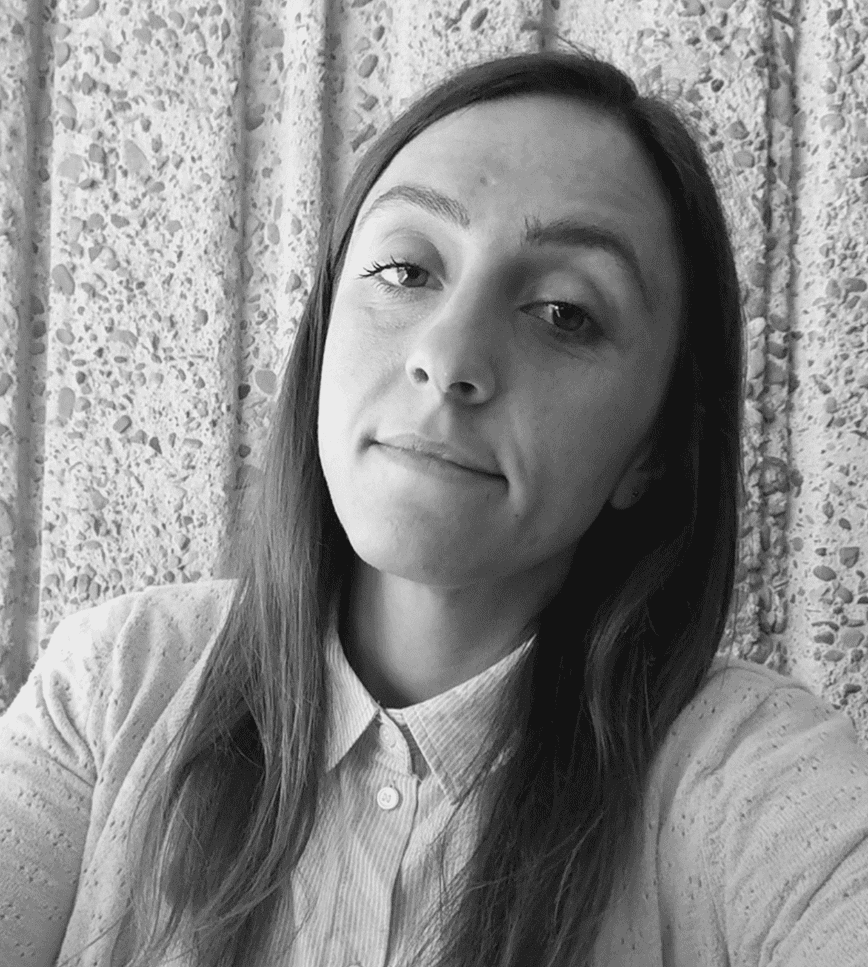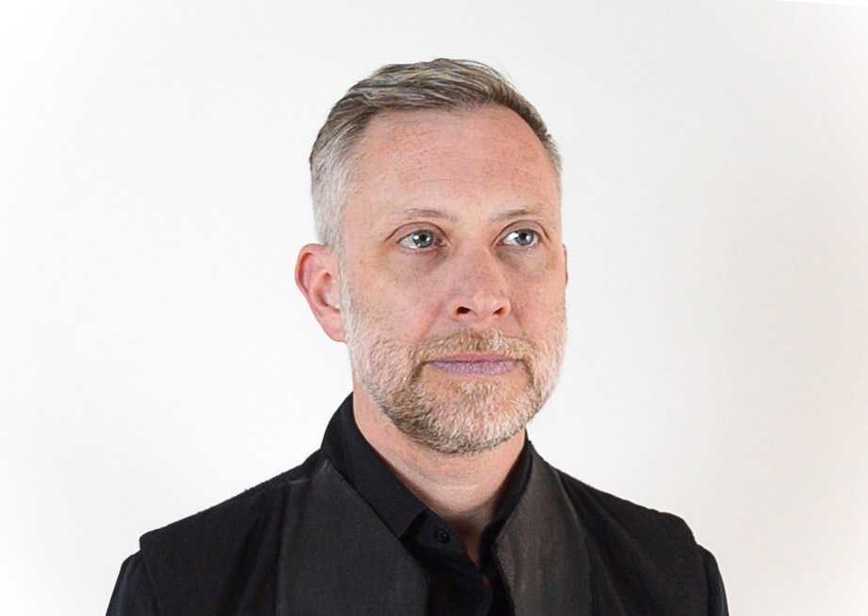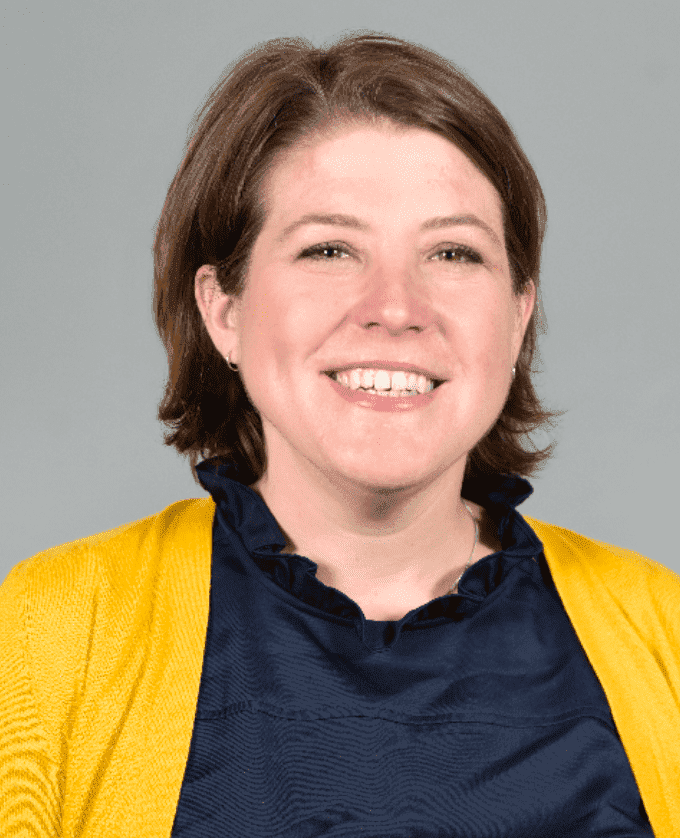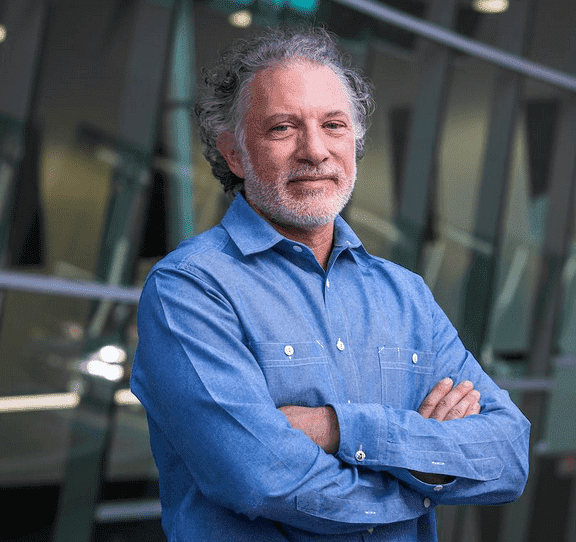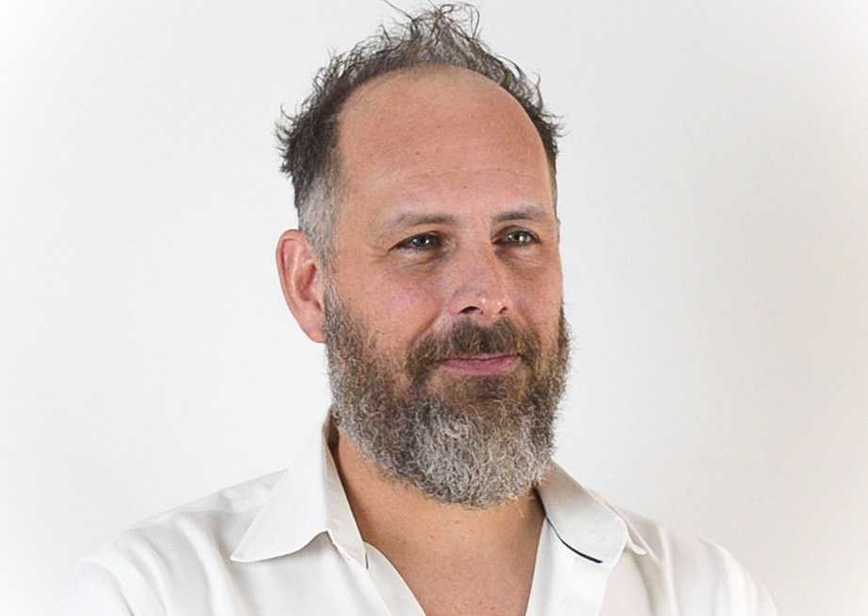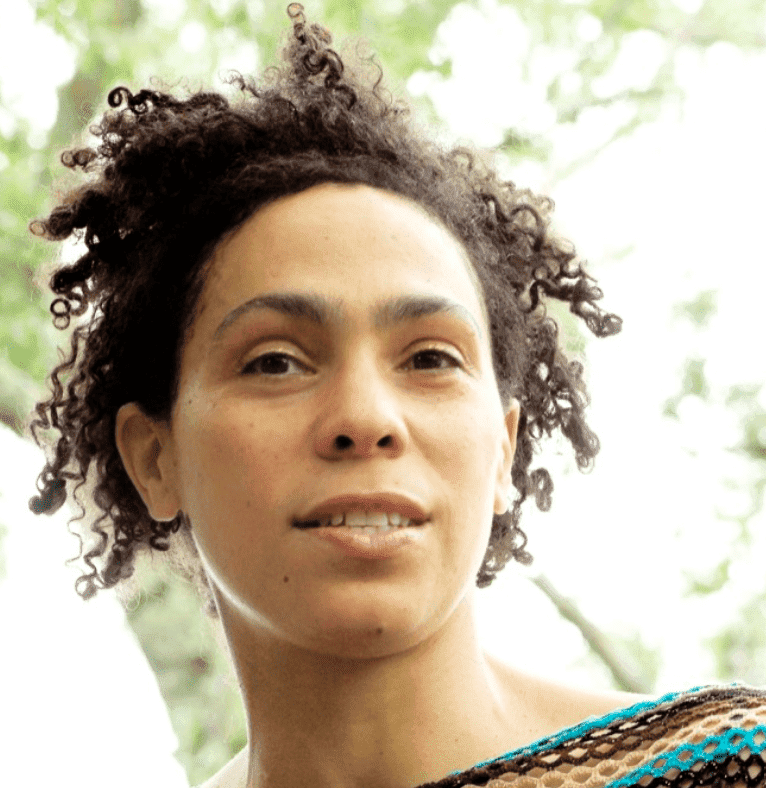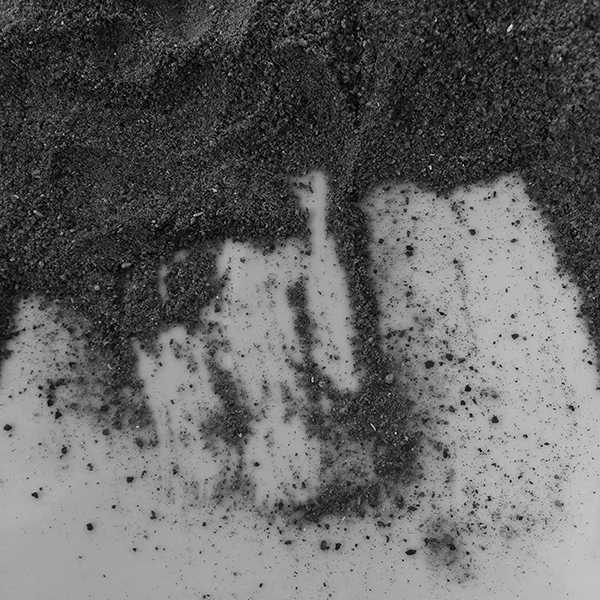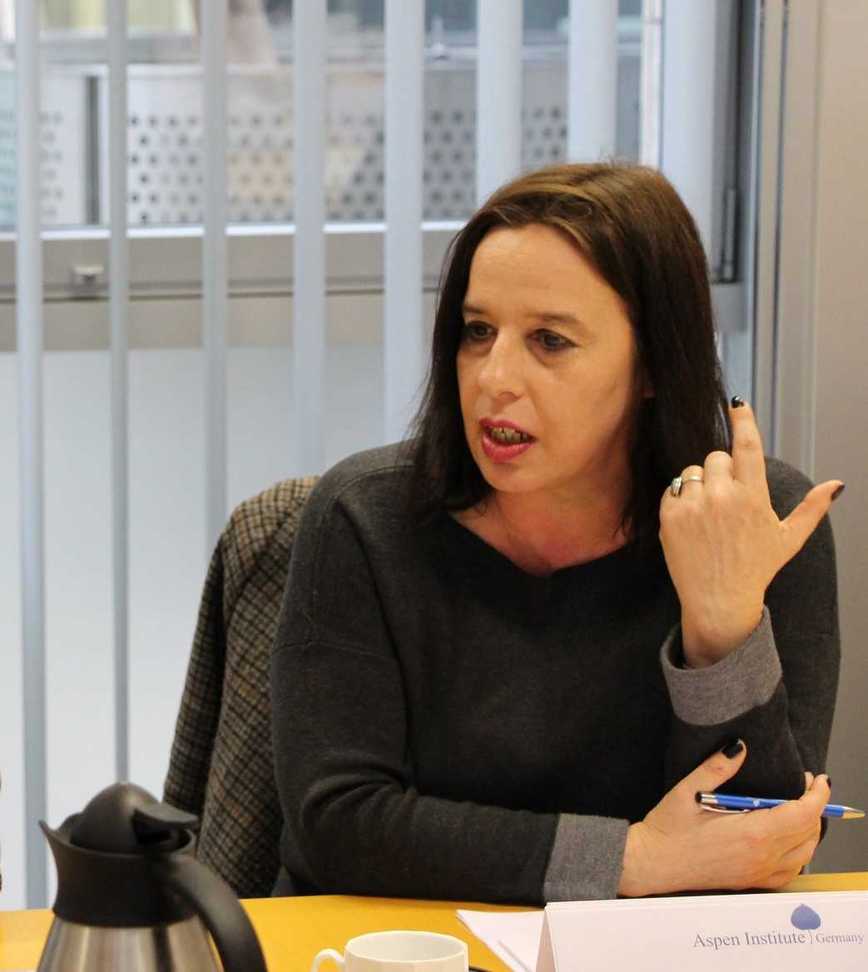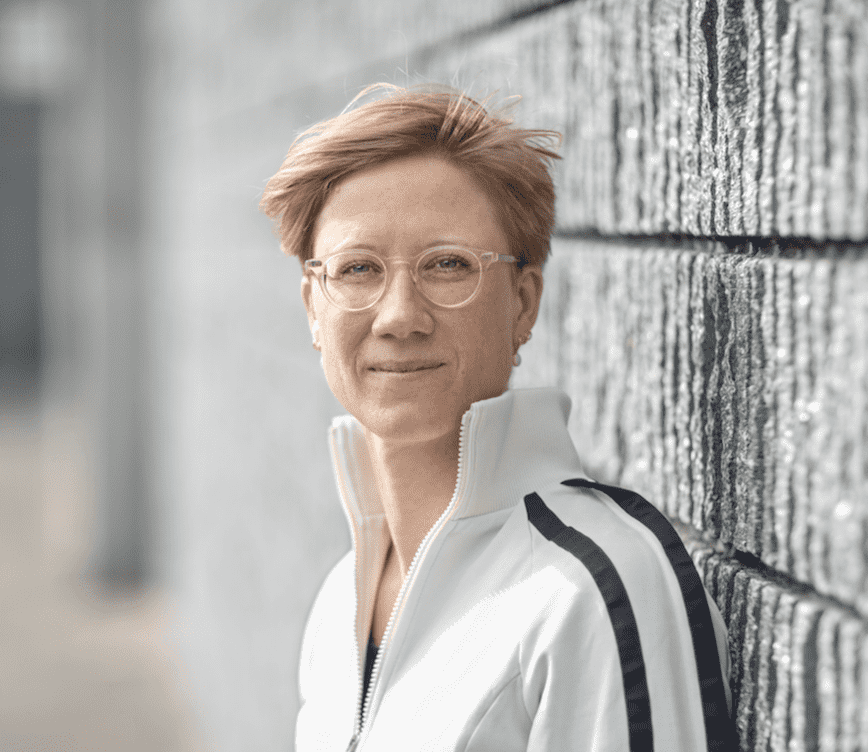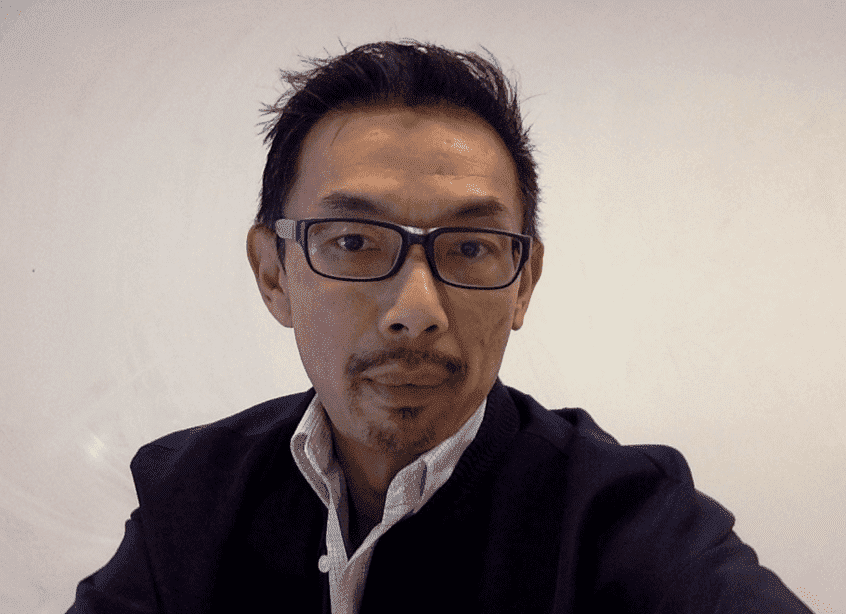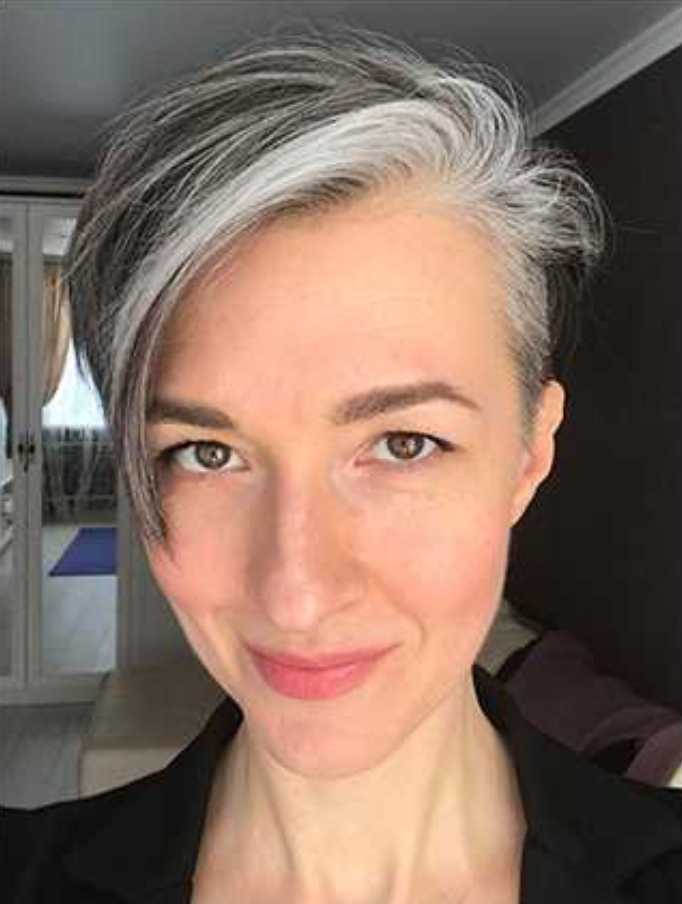About
The Center for Philosophical Technologies (CPT) is a strategic initiative of Arizona State University. The CPT brings together philosophers, designers, artists, scientists, and critical and creative practitioners to critique and reimagine the relation between philosophy, design, and technology in the twenty-first century and beyond.
The CPT thinks about philosophy and technology as mutually transformative: philosophy is a technology of thought and practice and technology can be thoughtful and speculative. So conceived, the center investigates philosophical technologies at every scale: from the computational technologies used in machine learning, bioinformatics, and planetary infrastructure design to the analog technologies used in storytelling, ecological communication, and urban community building.
The center supports work through project development, faculty and student fellowships, residencies, global education initiatives, and publications.
Core Members
Adam Nocek is an Associate Professor in the Philosophy of Technology and Science and Technology Studies at the School of Arts, Media, and Engineering at Arizona State University. He is also the Founding Director of ASU’s Center for Philosophical Technologies. Nocek has published widely on the philosophy of media and science; speculative philosophy (especially Whitehead); design philosophy, history, and practice; and critical and speculative theories of computational media. He recently published Molecular Capture: The Animation of Biology (Minnesota, 2021), and is working on his next monograph, Governmental Design: On Algorithmic Autonomy. Nocek is the co-editor (with Tony Fry) of Design in Crisis: New Worlds, Philosophies and Practices, The Lure of Whitehead (with Nicholas Gaskill), along with several other collections and special issues, including a special issue of Angelaki: Journal of the Theoretical Humanities (with Cary Wolfe) titled, “Ontogenesis Beyond Complexity.” He is the editor of Techniques Journal and is a visiting researcher at the Amsterdam School for Cultural Analysis at the University of Amsterdam. Nocek previously held the Royal Netherlands Academy of Arts and Sciences Visiting Professorship.
Stacey Moran, associate director of the CPT, is an assistant professor in the school of arts, media + engineering, and English. Stacey works at the intersections of feminist theory and technoscience, design research, and critical pedagogy. Her scholarship views gender politics as not simply being about men and women but focuses precisely on how to understand agency, body, rationality, and the boundaries between theory/practice and thinking/making. Stacey worked in the fashion industry for twenty years and enlists this expertise to engage in new forms of speculative and critical design research. Her current research investigates how methods in the physical sciences provide a new foothold for thinking about the materiality of knowledge production in feminine writing practices.
Silvia Neretti is a social designer and currently a doctoral candidate in the Design department at Arizona State University, Herberger Institute for Design and the Arts, teaching assistant and research assistant, and coordinator for the Center for Philosophical Technologies at ASU. She owns a bachelor’s degree in Industrial Design from the Free University of Bolzano, Italy, and a master’s degree in Social Design at the Design Academy Eindhoven, Netherlands. Her current research aims to develop design systems to redistribute psychotherapy in everyday life, focusing on Eating Disorders, communications, and paradoxical interactions.
Board Members
Dr. Cala Coats is an Assistant Professor of Art Education at the School of Art. Her research focuses on intersections of ethics and aesthetics with an emphasis on public pedagogy, nomadic inquiry, and socially engaged art. Dr. Coats has published in a range of books and journals including “Makers, Crafters, Educators: Working for Cultural Change” (Routledge) and “Bridging Communities Through Socially Engaged Art “(Routledge). She recently organized the symposium, Imaginative Futures: Arts-Based Research as Boundary Event, and a week-long curriculum and studio workshop for regional art educators at ASU.
Ron Broglio is the Director of Desert Humanities at Arizona State University and Co-Director of the Institute for Humanities Research at ASU as well as Visiting Research Fellow at the University of Cumbria School of Art.
He is the author of Beasts of Burden: Biopolitics, Labor, and Animal Life and Surface Encounters: Thinking with Animals and Art among other books, and edited collections including the recently published The Edinburgh Companion to Animal Studies. He collaborator and co-curator of Trout Fishing in America and Other Stories in which artists Bryndís Snæbjörnsdóttir and Mark Wilson examine the cultural life of endangered species in the Grand Canyon. He has performed as Field Marshal of the Animal Revolution and created a number of animal art interventions including Teat Tweet and Santio’s Gift. Currently, he is working on desert phenomenology experiments with the art/design group FoAM and is working on an artistic and theoretical treatise called Animal Revolution: Events to Come. And he is engaged in a number of long-term thinking-making experiments in the deserts of the American Southwest.
Gaymon Bennett is an associate professor of religion, science, and technology at Arizona State University. He works on the problem of modernity in contemporary religion and biotechnology: its shifting moral economies, contested power relations, and uncertain modes of subjectivity. His book “Technicians of Human Dignity” (Fordham 2016) examines the figure of human dignity in 20th-century international and religious politics and its current biopolitical reconfigurations. His co-authored book “Designing Human Practices: An Experiment with Synthetic Biology” (with P. Rabinow, Chicago, 2012) chronicles an anthropological experiment in ethics with engineers reimagining the boundary of biology and computation. And his co-authored “Sacred Cells? Why Christians Should Support Stem Cell Research” (with T. Peters and K. Lebacqz, Rowman & Littlefield, 2008) critically engages the early days of stem cell research and the unwitting role of religion in the secularization of life.
Gaymon has conducted multiple experiments in cross-disciplinary collaboration with contemporary biologists and bioengineers. He is a fellow of the Institute for the Future of Innovation in Society, and an affiliate faculty member with the Center for Jewish Studies, the School for the Future of Innovation in Society, and the Lincoln Center for Applied Ethics at ASU. He is a co-founder and fellow of the Center for Biological Futures in the division of basic sciences at Fred Hutchinson Cancer Research Center. He is also a principal of ARC [Anthropological Research on the Contemporary] and was a founding co-designer of the Human Practices Initiative at the multi-university Synthetic Biology Engineering Research Center (SynBERC). He led Human Practices at the International Open Facility Advancing Biotechnology (BIOFAB) at Lawrence Berkeley National Labs. These experiments emphasize collaborative empirical inquiry, a shift from theory to shared concept work, and sustained attention to the culture and politics of knowledge production.
Grisha Coleman is a time-based artist working in performance and experiential media. Her work explores relationships between physiological, technological, and ecological systems. As faculty, she holds the position of associate professor of movement, computation, and digital media in the School of Arts, Media, and Engineering, with affiliations in the Schools of Dance and Design. Her art and scholarly work, echo::system, is a springboard for re-imagining the environment, environmental change, and environmental justice. Her research in movement and somatic methods informs her teaching as well as supports transdisciplinary research; she is a member of The International Somatic Movement Education & Therapy Association (ISMETA) and works with modalities of Body-Mind Centering ™ and The Feldenkrais Method™.
Coleman is a New York City native. Her work has been recognized nationally and internationally; including a 2012 National Endowment for the Arts in Media Grant [NEA], the 2014 Mohr Visiting Artist at Stanford University, a fellowship at the STUDIO for Creative Inquiry at Carnegie Mellon University, and multiple grants from the Rockefeller Multi-Arts Project Fund, The Surdna Foundation, and The Creative Capital Foundation. She performed as a member of the acclaimed dance company Urban Bush Women and founded the music performance group HOTMOUTH, toured extensively nationally and internationally, and was nominated for a 1998 NYC Drama Desk Award for “Most Unique Theatrical Experience.”
Visiting Researchers
Joanna Zylinska is a writer, lecturer, artist, and curator, working in the areas of digital technologies and new media, ethics, photography, and art. She is a Professor of Media Philosophy + Critical Digital Practice in the Department of Digital Humanities at King’s College London. She is also a member of Creative AI Lab, a collaboration between King’s and Serpentine Galleries. Prior to joining King’s in 2021, she worked for many years at Goldsmiths, University of London, including as Co-Head of its Department of Media, Communications, and Cultural Studies. She has held visiting positions as a Guest Professor at Shandong University in China, Winton Chair Visiting Scholar at the University of Minnesota, US, and Beaverbrook Visiting Scholar at McGill University in Canada.
Zylinska is the author of eight books – most recently, AI Art: Machine Visions and Warped Dreams (Open Humanities Press, 2020, open access), The End of Man: A Feminist Counterapocalypse (the University of Minnesota Press, 2018, open access) and Nonhuman Photography (MIT Press, 2017). Her work has been translated into Chinese, Korean, French, German, Norwegian, Polish, Portuguese, Russian, Spanish, and Turkish.
Zylinska combines her philosophical writings with image-based art practice and curatorial work. In 2013 she was the Artistic Director of Transitio_MX05 ‘Biomediations’: Festival of New Media Art and Video in Mexico City. She has presented her work at many art and cultural institutions, e.g. Ars Electronica in Linz, CCCBarcelona, Centre Culturel International de Cerisy, Fotomuseum Winterthur, MMOMA in Moscow, Serpentine Galleries in London, SESC Sao Paolo and Transmediale in Berlin.
She recently co-edited Photomediations: An Open Book and Photomediations: A Reader as part of Europeana Space, a grant funded by the European Union’s ICT Policy Support Programme. She is currently researching perception and cognition as boundary zones between human and machine intelligence, while also trying to answer the question: ‘Does photography have a future?’. Her book The Future of Media, co-edited with Goldsmiths Media, came out in 2022 – and is also available on an open-access basis.
Gary Hall is a media philosopher working (and making) at the intersections of digital culture, politics, art, and technology. He is a Professor of Media at Coventry University, UK, where he directs the Centre for Postdigital Cultures which brings together a plurality of media theorists, practitioners, activists, and artists.
His work focuses on non-liberal humanist forms of collaboration, peer-production, and the knowledge commons, as well as questions around class, elitism, social justice, and digital capitalism. He is the author of a number of books, including A Stubborn Fury: How Writing Works In Elitist Britain (Open Humanities Press, 2021), The Inhumanist Manifesto (Techne Lab, 2017), Pirate Philosophy (MIT Press, 2016) and The Uberfication of the University (Minnesota UP, 2016). In addition, he is the co-author of Open Education: A Study In Disruption (Rowman and Littlefield International, 2014), and co-editor of New Cultural Studies: Adventures in Theory (Edinburgh UP, 2006).
He has a history of creating norm-critical collaborative research contexts. In 1999 he co-founded the contemporary theory journal Culture Machine. In 2006 he co-founded the open-access publishing house Open Humanities Press (OHP), which he still co-directs. He also co-edited OHP’s Liquid Books series and the Jisc-funded Living Books About Life series. OHP is a founder member of both the Radical Open Access Collective and ScholarLed, with Hall currently being co-PI on the associated £3 million Research England and Arcadia Trust funded Community-led Open Publication Infrastructures for Monographs (COPIM) project.
He has given lectures and seminars at institutions around the world, including the Australian National University, Cambridge University, Columbia University, and University of Heidelberg, K.U. Leuven, Lund University, Monash University, New York University, Universidad Iberoamericana in Mexico, Xi’an Jiaotong Liverpool University in China, the Onassis Cultural Centre in Athens, the Reina Sofia Museum in Madrid, and the Wellcome Collection in London. With over forty-five peer-reviewed publications in edited books and academic journals including American Literature, Angelaki, Cultural Studies, New Formations, and Radical Philosophy, his work has been translated into Chinese, French, Japanese, Turkish, Russian, Spanish, and Slovenian.
He is currently developing a series of politico-institutional interventions that experiment with digital media to actualize, or creatively perform, contemporary theory in relation to the city and public institutions such as the art gallery, the library, and the museum. He is also completing a new monograph: Masked Media: Doing Radical Research in Times of Crisis.
Hall has written on class, the commons, copyright, cultural analytics, data, metadata, digital capitalism, digital humanities, the history and future of the book, media archaeology, new materialism, open access, open education, piracy, the posthuman, posthumanities, Marxism, post-Marxism, psychoanalysis, the quantified self, the sharing/gig economy, secrecy, the university, and on the philosophy of Foucault, Deleuze, Derrida, Lyotard, Hardt and Negri, Mouffe, Stiegler, and Braidotti. He is associated with the development of a number of critical concepts and practices, including open media, liquid theory, living books, radical open access, the microentrepreneur of the self, affirmative disruption, disruptive humanities, masked media, übercapitalism, anti-bourgeois theory, and pirate philosophy.
Dr. Katerina Kolozova is a senior researcher and full professor at the Institute of Social Sciences and Humanities, Skopje. She is also a professor of philosophy of law at the doctoral school of the University of American College-Skopje. At the Faculty of Media and Communications Belgrade, she teaches contemporary political philosophy. Kolozova was a visiting scholar at the Department of Rhetoric at the University of California-Berkley in 2009, and a Columbia University NY-SIPA Visiting Scholar at its Paris Global Centre in 2019. She is a member of the Board of Directors of the New Centre for Research and Practice – Seattle WA and the first co-director and founder of the Regional Network for Gender and Women’s Studies in Southeast Europe (2004- ). Kolozova is the author of Capitalism’s Holocaust of Animals: A Non-Marxist Critique of Capital, Philosophy and Patriarchy published by Bloomsbury Academic-UK in 2019 and Cut of the Real: Subjectivity in Poststructuralist Philosophy, published by Columbia University Press-NY in 2014.
Iris van der Tuin is Professor of Theory of Cultural Inquiry in the Department of Philosophy and Religious Studies at Utrecht University and Director of its School of Liberal Arts. Iris is interested in humanities scholarship that traverses the ‘two cultures’ and reaches beyond the boundaries of academia. As such, she contributes to the new and interdisciplinary humanities and to the Scholarship of Interdisciplinary Teaching and Learning (SoITL). She leads the research group Subjects in Interdisciplinary Learning and Teaching (SILT), a theme under the umbrella of the research initiative Transmission in Motion, and coordinates the special interest group AI in Cultural Inquiry and Art: Thinking and Making in the Algorithmic Condition, a SIG of the focus area Human-Centered Artificial Intelligence. With Nanna Verhoeff, she recently initiated the Creative Humanities Academy: an infrastructure for collaboration between academic scholars and creative professionals, post-academic teaching, and consultancy on humanities theories, methodologies, and pedagogies.
Stephen Loo is an architect, philosopher, and artist. He is a Professor of Design at UNSW. For more than 25 years, he has researched, taught, and practiced in the transdisciplinary nexus of design, philosophy, art, performance, and science. He has published widely in architecture and design theory, biophilosophy, posthumanist ethics, ecological humanities, and experimental computational and digital thinking. He holds a PhD in architecture and philosophy from the University of Sydney. Recent books include Deleuze and Architecture (ed. with Helene Frichot 2012) and Poetic Biopolitics (ed. with Peg Rawes and Tim Mathhews 2016) and are currently working on Speculative Ethologies (with Dr Undine Sellbach) on the relationship between entomology, psychoanalysis, and ethics. Stephen is a founding partner of award-winning design, architecture, interpretation, and exhibition practice Mulloway Studio, whose projects have featured in the Venice Biennale in 2008 and 2014. He has a performance philosophy and expanded painting art practice and has shown in Paris, Berlin, London, Sydney, Hobart, and Adelaide, and is part of an international collective, The Food Project. Stephen has held Visiting Professor positions at University College London, RMIT, University of Tasmania, and as an External Examiner at Goldsmiths College London.
Margret Grebowicz is the author of Mountains and Desire: Climbing vs. The End of the World, Whale Song, The National Park to Come, Why Internet Porn Matters, and Beyond the Cyborg: Adventures with Donna Haraway, as well as numerous articles on environmental imagination, gender and sexuality, wilderness, animal studies, and post ‘68 French philosophy. Her recent essays have appeared in Philosophical Salon and The Atlantic, and her forthcoming work includes the co-edited collection Lyotard and Critical Practice. In addition to being tenured twice during her almost twenty years of university teaching, Margret has also worked as a literary translator, a jazz vocalist, and a dance instructor.
Margret is a native Pole from Łódź. She has held professorships at the University of Houston-Downtown, Goucher College in Baltimore, and the School of Advanced Studies at the University of Tyumen in Russia, and is currently an associate professor at the University of Silesia in Poland. She has been awarded a Fulbright fellowship in Poland and a Leverhulme Trust fellowship in the UK. Her academic passions center on international education, interdisciplinary research, and public-facing presentation of scholarship. Her personal passions include the American West, Eastern Europe, and foraging for mushrooms with her dogs.
Partners
- (A)
- (C)Center for Critical and Cultural Theory, Rice University
- (D)
- (E)
- (F)
- (H)
- (I)
- (M)
- (O)
- (S)
- (T)
